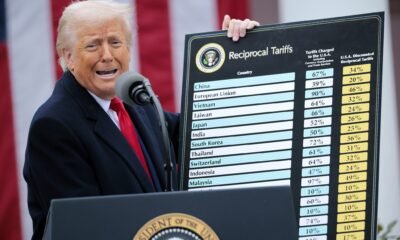border
Supreme Court Allows Trump to Cut Humanitarian Protections for 500,000 Migrants

The Supreme Court delivered a significant ruling on Friday, impacting over half a million migrants from Cuba, Haiti, Nicaragua, and Venezuela who are in the U.S. under humanitarian provisions. This decision bolsters President Donald Trump’s mass deportation strategy.
In March, Homeland Security Secretary Kristi Noem revoked the Biden-era special parole program. However, her actions were temporarily blocked by a federal judge. Trump urged the Supreme Court to reinstate Noem’s policy, aiming to address what he described as a “destabilizing trend” in immigration law.
The legal argument echoed prior discussions over Trump’s executive order concerning birthright citizenship. The administration contended that lower courts were overstepping their bounds regarding immigration authority.
U.S. Solicitor General John Sauer stated, “The district court has nullified one of the Trump administration’s most consequential immigration policy decisions.” He referred specifically to the revocation of the parole for approximately 532,000 migrants deemed contrary to U.S. interests.
In a 2022 decision, then-Secretary Alejandro Mayorkas utilized a provision from the Immigration and Nationality Act, providing two-year parole for the aforementioned migrants. The Trump administration asserted these mass parole programs discouraged illegal border crossings but failed to facilitate legal status for migrants.
Advocacy groups opposed Noem’s policy, arguing it would cause undue harm to beneficiaries and fracture families and communities. U.S. District Judge Indira Talwani ruled in favor of these groups, indicating that the White House’s approach was both unprecedented and unlawful. The First Circuit upheld this decision, determining Noem did not sufficiently demonstrate that her policy changes would withstand legal scrutiny.
Talwani’s ruling did not prevent Noem from adjusting employment authorizations or effectively terminating parole; it merely addressed the improper status changes outlined in her federal register notice.
“The order does not mandate the secretary to perform any specific action other than to adhere to the court’s preliminary conclusion,” noted the advocacy groups. They emphasized that stripping protective status from 500,000 migrants could inflict severe harm on the individuals and the communities reliant on their contributions.
The groups cautioned, “Terminating CHNV beneficiaries’ parole could render those undocumented and, without work authorization, legally unemployable.” They added that accelerating deportation risks would separate these individuals from their families in the U.S., highlighting the urgency and implications of the Supreme Court’s decision.

















